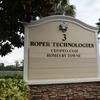When it comes to Denver’s ongoing real estate boom, industry pros are beginning to wonder if the laws of gravity still apply.
Specifically, Matt Vance, director of research and analysis for real estate services firm CBRE’s Colorado office, is wondering if what goes up really must come down.
“It’s like, when is this cycle going to turn down?” Vance said. “And it just hasn’t.”
There was no hint of a return to Earth in CBRE’s year-end examinations of metro Denver’s retail, office and industrial real estate markets, and CBRE experts aren’t seeing reason to believe a descent will begin in 2019 either.
Perhaps nowhere is the Denver real estate market’s sustained strength more revealing than in the retail sector. That much-maligned segment of the real estate market, allegedly on the continual verge of collapse under the weight of online competition, posted a strong year in Denver in 2018, according to CBRE’s research. Asking lease rates of $19.34 per square feet hit a record as of the end of the year.
More than 709,000 square feet of space — both newly built and existing space put back on the leasing market — was sucked up by tenants in 2018. With 1.34 million square feet of new retail space built in 2018 — an 18.9 percent jump over the year prior — overall vacancy held fast at 7.2 percent. The comes in spite of notable big-box retailers like Toys R Us going out of business and shutting down stores in the metro market.
“There is generally perception that we have more available (big boxes) than we’ve ever had, and that’s not true,” said Justin Kliewer, a vice president with CBRE retail services said. “We’ve got about 75 right now in the Denver metro area, and we had as many as a 100 in 2011, 2012. The good boxes are going to get leased.”
As the potential end of Sears swirls in the air, Kliewer said he is already fielding interest for the former retail powerhouse’s store at 10785 W. Colfax Ave. in Lakewood, a location the company announced in October it planned to close.
Real estate is a reflection of the economy as a whole and CBRE tracked strong growth in 2018. The metro area added 43,527 jobs through November in 2018. That despite a minuscule unemployment rate that actually ticked up to 3.2 percent at the end of the year. Colorado continues to grow — adding 80,000 people last year — and the Denver area continues to attract young, highly educated residents.
“When retailers look at our demographics, they see a gold mine,” Kliewer said.
The metro area’s office and industrial markets also set records in 2018.
Average asking office rents continued to climb in the final part of the year, reaching a new all-time high of $28.34 per square foot, according to CBRE research. About 2.9 million square feet was sucked up by tenants last year, and another 3 million square feet is under construction across the market.
Most revealing to Jenny Knowlton, a vice president with CBRE capital markets, was how many big downtown buildings were sold last year. Across Denver, $3 billion was shelled out for office building purchases in 2018, and more than half of that happened in the downtown area. Knowlton called that “a strong testament to investor confidence in the Denver market as a whole.”
A prices continue to climb in LoDo and RiNo, Knowlton expects to see a lot investor interest in older buildings in the Uptown neighborhood this year. The goal she said will be to buy low, invest in upgrades, then sell high in a few years.
Related Articles
- April 20, 2018
Big industrial deals have more real estate investors taking note of Denver market
- October 12, 2018
Belleview Station nets second Fortune 500 company as urban development springs from suburban south Denver
- September 14, 2018
Downtown Denver office use to increase by more than 1 million square feet annually through 2021
The appetite for industrial space in the Denver is as strong as its ever been, according to CBRE’s numbers. A record $1.7 billion changed hands in industrial real estate purchases last year, including a record $206.1 million deal for a 14-building portfolio near Denver International Airport. That investor interest not only speaks to a strong local economy, but a strong economy across the Rocky Mountain region, CBRE executive vice president Jim Bolt said.
So, what’s on tap for 2019? A lot more speculative construction, and, potentially, lower lease rates, Bolt said. Of the 4.2 million square feet of commercial space under construction in Denver today, roughly 3.5 million of it doesn’t have tenant attached yet.
“That certainly could turn the tide a little bit as some of the developers that aren’t doing as well have to give in on lease rates,” he said.
Updated Aug. 15 2019, at 5:15 p.m. Because of an error by a reporter, the total amount of money that traded hands in industrial real estate sales in 2018 was originally misreported. The total was $1.7 billion.


